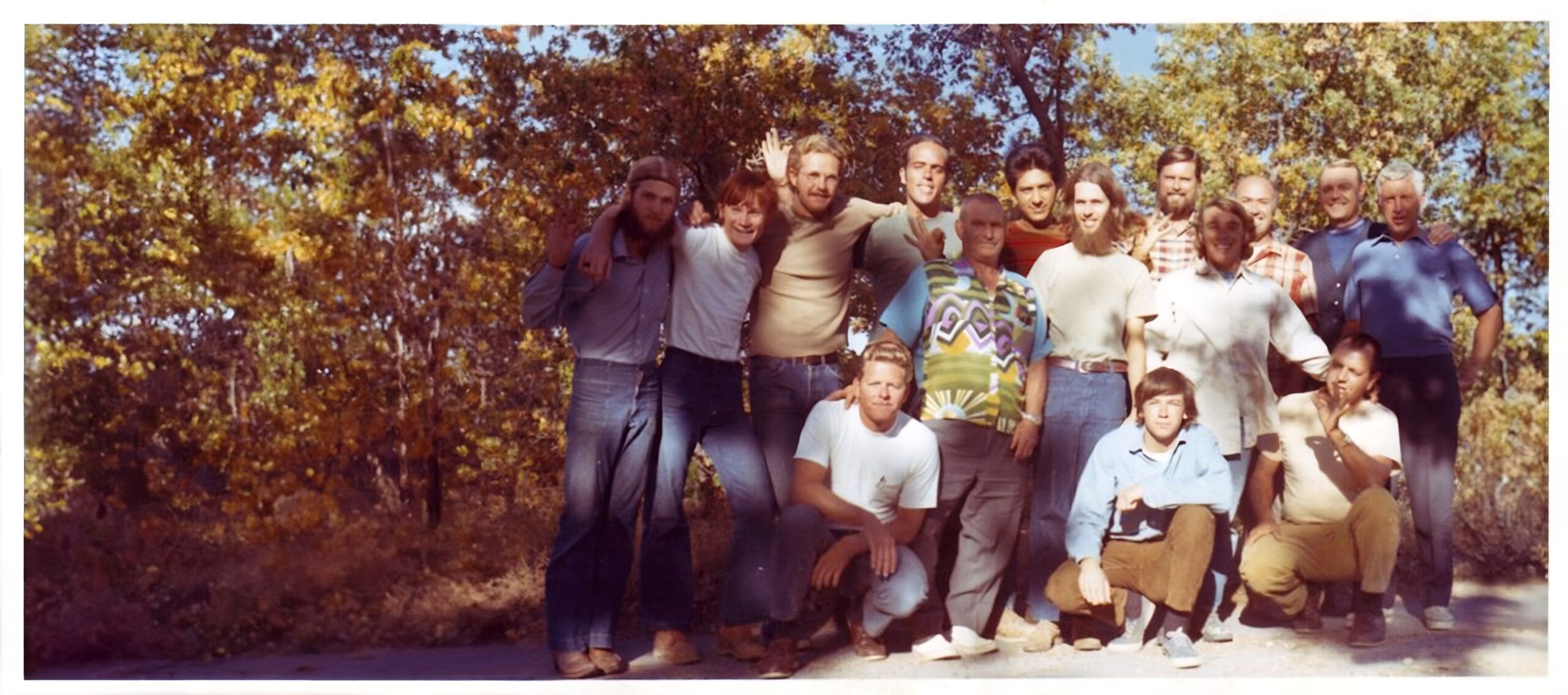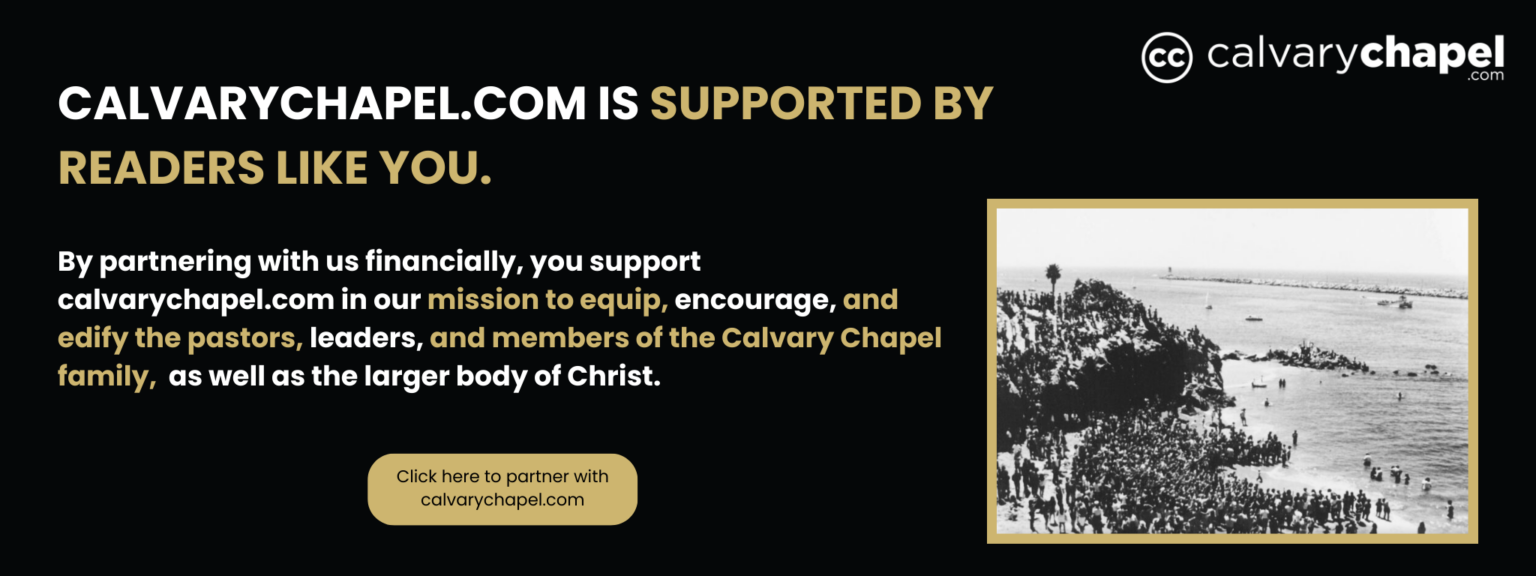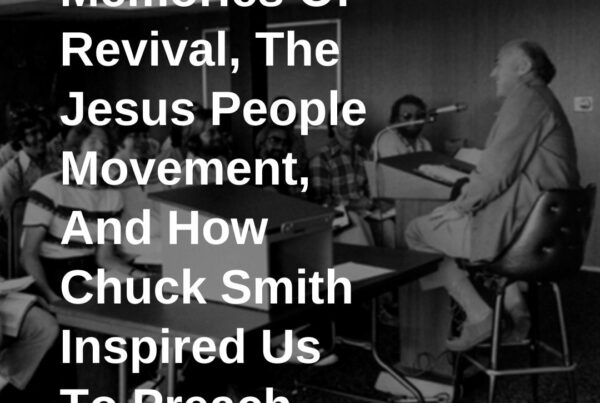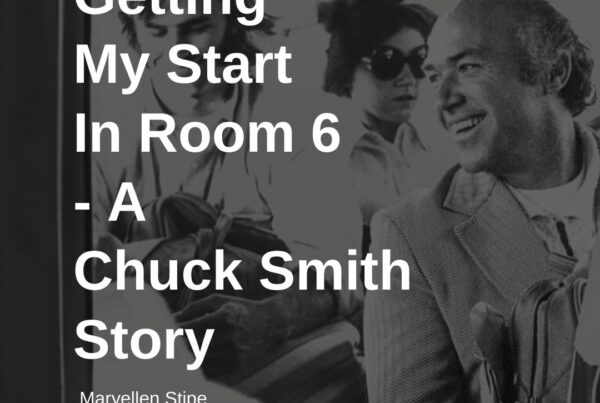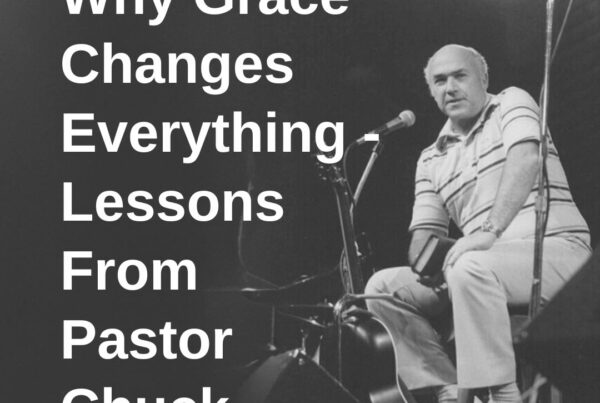
I have had a repeated and deepening experience of God’s grace throughout my time with Calvary Chapel. Although I only met him in passing, I attribute much of that to Pastor Chuck. Chuck, and Calvary Chapel Costa Mesa’s place at the center of the Jesus People Movement no doubt has many causes; very clearly, God was moving mightily by his Spirit. And that move was also fueled by countless social and cultural changes that God orchestrated in his providence. However, Chuck also played a significant part in defining Calvary Chapel in Costa Mesa and the movement that stemmed from it, including my own experience. Chuck created a culture of surprising welcome.
It is profound how many of the best practices and theological strategies we speak of today are absent in Pastor Chuck. You couldn’t really call Chuck missional, nor was his approach intentionally cross-cultural; he didn’t become a hippie to reach the hippies. Instead, his approach is best seen as an act of hospitality. Chuck took those who were different, outsiders, and culturally incompatible, and he welcomed them into his church and, through the Gospel, into the very family of God. In his words and in his actions, Chuck mirrored the father in Jesus’ parable, who celebrated and affirmed his wayward son who had returned.
Those who heard Chuck preach and spoke to him discovered that the Gospel was for them. They discovered that they could worship God through their own music. They learned that God could use them right where they were.
Undergirding this hospitality was Pastor Chuck’s understanding of God’s grace. It was clear when he spoke that he was amazed that God could use him and that he came into God’s presence empty-handed and needy, just like everyone else. Because he didn’t see himself as a first-class citizen, he didn’t treat anyone as if they were second-class. His gratitude for God’s grace in his own life bordered on surprise, and that surprise was contagious.
Of course, I wasn’t alive then, and my understanding of those days is secondhand at best, but my own experience validates this interpretation. The culture that Chuck cultivated spread across the globe in hundreds of Calvary Chapels. In the early 2000’s, I chased a girl into one of these in the small town of Yakima, Washington. What I found in that little church was unexpected and radical: an entire group of people with whom I had little in common who welcomed my presence, noticed my absence, and expressed authentic care for me. The experience I had was one of surprising welcome. “Me?” I thought. Coupled with the power of the Gospel and the truth of God’s word faithfully taught verse by verse, chapter by chapter, that church changed the trajectory of my life.
That pointing to myself in awe, “Me?” happened again and again. When a mentor pulled me aside to tell me I had the gift of teaching, “Me?” When the church I was serving at asked me to consider planting in Seattle, “Me?” When I found myself in the prayer meetings that birthed CGN, and now serving as the President of CCBC, each time I was tempted to look over my shoulder for the clearly qualified person they must have in mind. Chuck left behind a grace-shaped movement, leaving room for God to move mightily in unexpected ways through unexpected people.
My experience with other church movements has shown this surprising welcome is not only defining of Calvary Chapel but unique. As a teen in a Baptist church, I remember when an acquaintance showed up in the lobby wearing a t-shirt with a large marijuana leaf. An usher quickly made his way over and guided him out of the building. I was not yet a Christian, but I still had enough sense to think, “Who needs to hear the Gospel more than him?”
Later, when I was a brand-new church planter in downtown Seattle, a large and booming church pastor invited me into his office to get to know me. The church had a reputation for poaching the best and brightest, and our time ran much more like an interview than an introduction. I gave classic Calvary Chapel answers to his questions: No, we don’t have a budget or a written plan. Right now, we are just a prayer meeting in a neighborhood apartment; it was clear that I didn’t measure up. I wasn’t worth poaching. He shook my hand, wished me well, and never reached out again.
Or there was the intersex person who attended my church and was very affirming, emblazoned in rainbows, who asked if we would baptize her. We set up a time to talk about many things, but since I had known her for some years, I asked her the one question I was most curious about: “As long as I’ve known you, you’ve attended the affirming church down the street, why do you want to join our church?” Without missing a beat, she replied, that church loves me because they have to, but your church just loves me.” Although my intersex friend had never heard the name Chuck Smith, in a significant way, she was drawn to the Gospel by the same surprising welcome that I had experienced: the surprising welcome that Chuck extended and modeled for us all.

